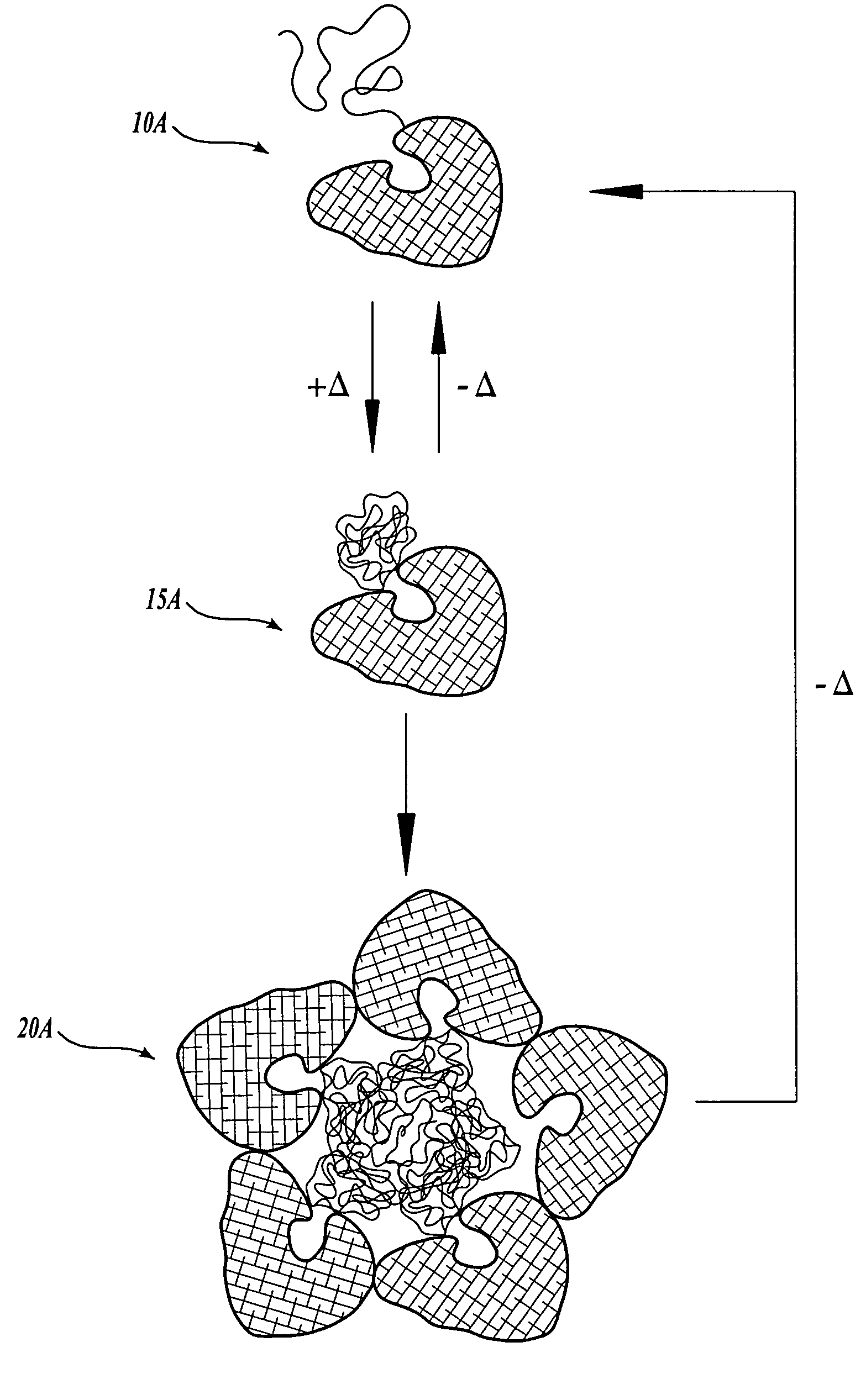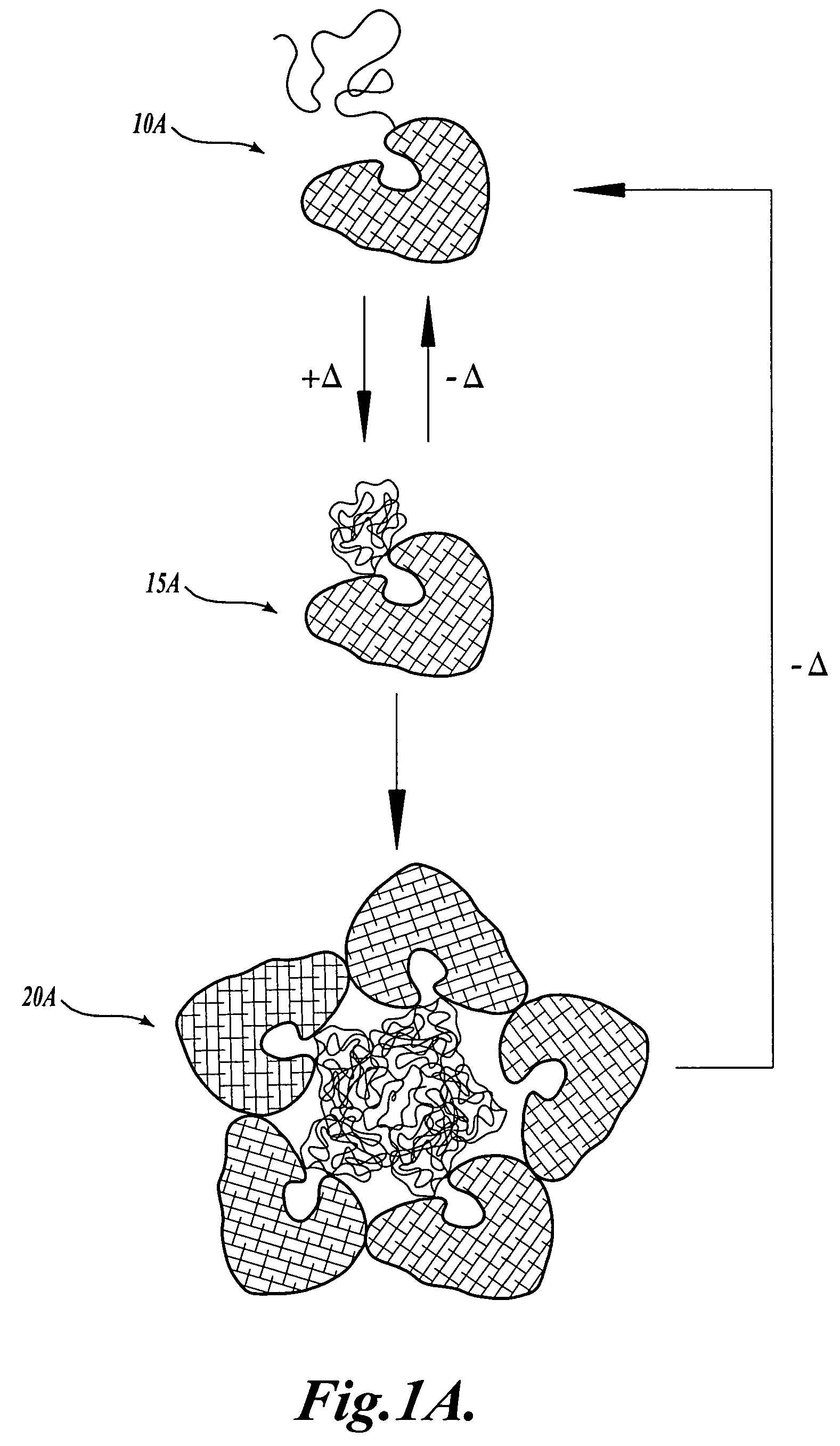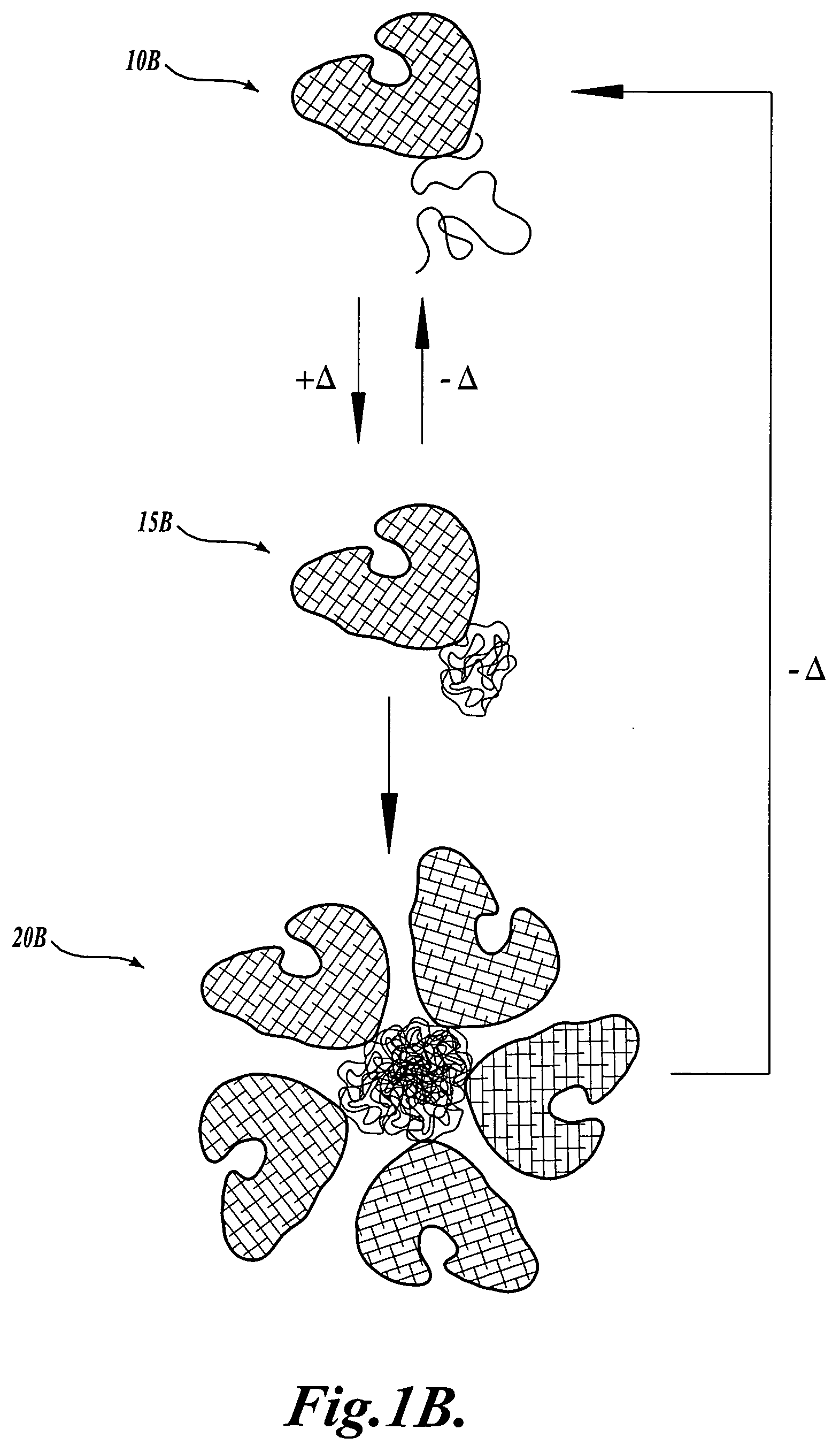Stimuli-responsive polymer devices
a technology of stimuli and polymer, applied in the direction of positive displacement liquid engine, laboratory glassware, instruments, etc., can solve the problems of biomolecules and cell damag
- Summary
- Abstract
- Description
- Claims
- Application Information
AI Technical Summary
Benefits of technology
Problems solved by technology
Method used
Image
Examples
Embodiment Construction
[0053]The present invention provides materials that include polymers that are reversibly self-associative in response to a stimulus (i.e., stimuli-responsive polymers) and methods for using the materials.
[0054]Stimuli-Responsive Polymer Conjugates
[0055]The present invention utilizes a stimuli-responsive polymer conjugate. The conjugate includes a polymer covalently coupled to a biomolecule, wherein the polymer is reversibly self-associative in response to a stimulus. The polymer has a first state in which the polymer is not self-associative, and a second state in which the polymer is self-associative. The polymer adopts the second state in response to a stimulus, and reverts to the first state from the second state on removal of the stimulus. The stimuli-responsive polymer imparts stimuli responsiveness to the conjugate.
[0056]The stimuli-response polymer can be any one of a variety of polymers that change their associative properties (e.g., change from hydrophilic to hydrophobic) in...
PUM
| Property | Measurement | Unit |
|---|---|---|
| particle size | aaaaa | aaaaa |
| molecular weight | aaaaa | aaaaa |
| critical solution temperature | aaaaa | aaaaa |
Abstract
Description
Claims
Application Information
 Login to View More
Login to View More - R&D
- Intellectual Property
- Life Sciences
- Materials
- Tech Scout
- Unparalleled Data Quality
- Higher Quality Content
- 60% Fewer Hallucinations
Browse by: Latest US Patents, China's latest patents, Technical Efficacy Thesaurus, Application Domain, Technology Topic, Popular Technical Reports.
© 2025 PatSnap. All rights reserved.Legal|Privacy policy|Modern Slavery Act Transparency Statement|Sitemap|About US| Contact US: help@patsnap.com



